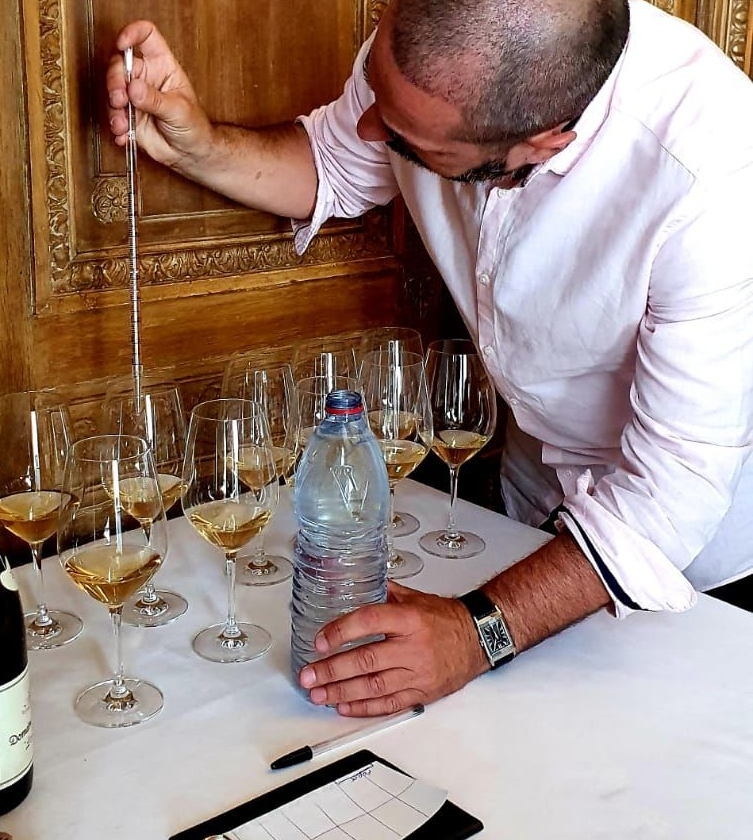It’s all well and good to claim that minerals in the water can influence a wine, but how about proving it?
For over 20 years, Xavier Vignon has been working as a consultant to support winemakers in their work, from the vineyards right through to the cellars. His passion and alchemistic soul enable him to push the boundaries of experimentation and innovation a little further each day so as to bring out the very best in the terroir. The diversity of terroirs, vines, varietals and altitudes have allowed him to analyse the mineral salt compositions in wines grown in different soil types and vinified and aged using different methods.
As such, the subject of minerality is often raised, even though he acknowledges that the term lacks definition and is subject to debate. He illustrates this analysis through the tasting of a white wine, an analysis that anyone can replicate themselves at home:

1. Serve a tasting dose of the same control wine in 6 different glasses.
2. Add 1ml of water with a high calcium content into the first glass, then 1ml of water with a high magnesium content into the second glass, and so on… The aim being to have an amount of the same wine served in several glasses to which we add a few drops of water with varying levels of different mineral salts.
3. Taste the wines and note the influence that the different mineral salts have on the same wine.
The result is surprising! The water with the highest mineral salt content gives rise to more harmonious wines whilst enhancing the sensation of acidity and salinity on the end palate. When we refer to salinity, we are actually referring to a fifth flavour on the palate that is know as ‘umami’. This flavour is detected by a papillary sensor capable of identifying amino acids and in particular glutamate.
Minerality and salinity are therefore very closely linked, and this is what Xavier Vignon is looking for in the creation of his wines. Minerality is our perception of the water and mineral salts contained in the wine. The difficulty lies in retaining the minerals, which disappear, without increasing the wine’s acidity or alcohol. For example, Xavier Vignon has found that there is a higher degree of minerals and organic acids in black grapes than in white grapes. So, you may ask, should we not be producing more saline white wines from black grapes?
This is precisely what the alchemist has chosen to do with his new cuvée Almutia Clair-Obscur, a white Châteauneuf-du-Pape made primarily from black grapes.